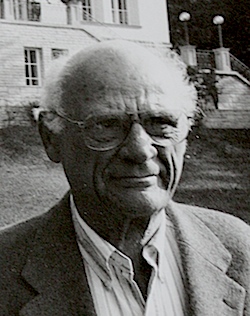
Author and Playwright, New York
Distinguished Inaugural Senior Fellow - Class of Fall 1998
Arthur Miller (October 17, 1915 – February 10, 2005), one of the most important American dramatists of the post-World War II era, was the American Academy’s Distinguished Inaugural Senior Fellow.
With his most well-know drama, Death of a Salesman (1949), Miller created an equally impressive and critical monument to the American Dream. For his story about the defeated Willy Loman, Miller was awarded the Pulitzer Prize. Four years later, he published his historical drama The Crucible – a critical socio-psychological study about the Salem witch-hunts in 1692. The theme of prosecuting minorities was, in 1950s America, politically explosive. Miller used this historical topic to reflect on the ideological prosecution of the McCarthy-Era during which he, too, due to his political beliefs, came into conflict with the House of Un-American Activities Committee.
In the years that followed, Miller’s most well-known work included A View Under the Bridge (1955), The Misfits (1961) and After the Fall (1964). At the end of the 1970s, Miller wrote the screenplay for Playing for Time – a film about the experiences of a women’s orchestra in a Nazi concentration camp in Germany during the late 1930s. Following its 1980 debut, Playing for Time won four Emmy Awards. In 1987, Miller’s biography Timebends: A Life was published, in which he looks back at his childhood in Brooklyn, the political tumult of the 1950s and his professional highs and lows in theater and in Hollywood. Miller’s most recently published work, Broken Glass (1995), won the British Oliver Prize for the best drama.
During his stay at the Hans Arnhold Center in Berlin, his works were a focal point of several Academy events. For example, film versions of his most famous works were shown and discussed at the Akademie der Künste, and he discussed The Crucible in a student seminar at the American Academy.
